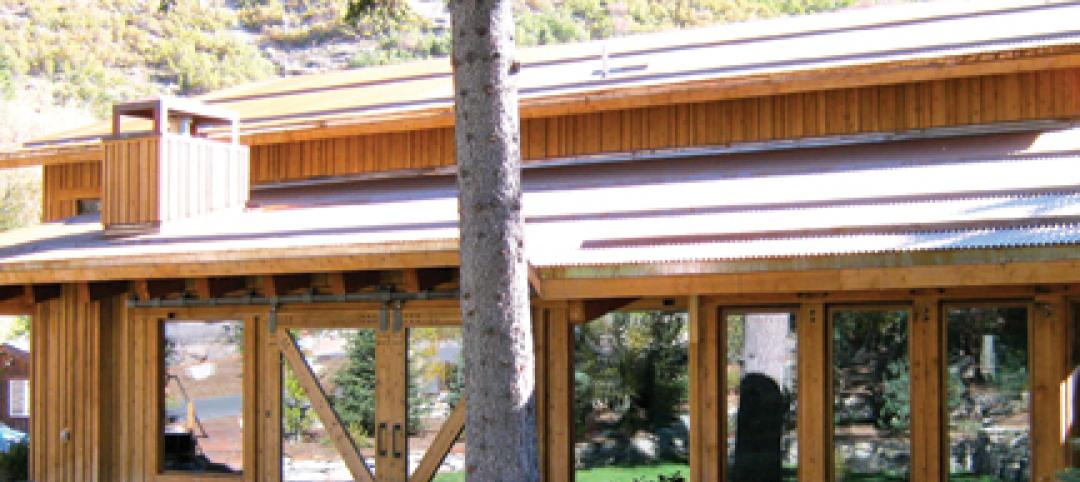Over the past eight years, the general contractor Swinerton went through an up and down growth trajectory that was limited by where it operated and the products it focused on.
In 2018, the company—which dates back to 1888—came out with its March to 2030, a blueprint for future growth that emphasizes product and geographic diversity. Since that plan came to light, the firm has expanded into Texas, Atlanta, Charlotte, and Raleigh. And now, it is making its boldest move by opening its first office in New York City, which Swinerton envisions becoming its hub for the Northeast.
That’s a tall order, given that the company had virtually no presence in that part of the country outside of some work in New Jersey by its renewable energy group. But the COVID-19 pandemic created what Swinerton’s CEO Eric Foster calls “an opportunity in crisis.”
“We feel the need to answer the call to build back better and stronger in post-pandemic New York,” says David Callis, Swinerton’s president and COO.
Running the New York office is Andrew Pearl, a 14-year company veteran who grew up in northern New Jersey but had spent his entire career, until now, with Swinerton in San Diego and San Francisco. “I never intended to stay in California,” Pearl tells BD+C, and he’s been pushing the company to open a branch in New York practically since he joined the firm.
After the coronavirus hit, Swinerton’s executives approached Pearl in the spring of 2020 about accelerating the company’s growth plans for the Northeast. Swinerton officially opens its New York office today at 292 Madison Avenue with 10 fulltime employees.
HOMING IN ON EXISTING ACCOUNTS

Andrew Pearl, Swinerton's New York division manager, has been urging his firm to expand into New York City for more than a decade. Image: Swinerton.
Pearl, whose title is Vice President and Division Manager, says that for the next 12 to 18 months, the New York office’s strategy is to serve the firm’s 75-plus accounts with which it has master agreements. These include technology companies, big banks, and insurance companies. Indeed, the first job the New York office booked is a “small” project for one of its tech clients.
“Many of these clients have been asking us to expand east to do work for them, and now we can finally say ‘yes,’” says Pearl. He adds that the types of projects Swinerton’s New York office is focusing on initially are corporate interiors, aviation, and healthcare/life sciences.
LEVERAGING DIFFERENTIATORS
The New York metro area is the largest and one of the most competitive commercial construction markets in the U.S. Prior to the pandemic, the value of commercial and multifamily starts in the area stood at $30.9 billion in 2019, according to Dodge Data & Analytics estimates.
To get the word out about its new office, Swinerton has hired a local P.R. agency, Cathy Callegari Public Relations, whose client list includes several other construction and engineering firms. Pearl is also in the process of joining a nonprofit that specializes in community building and neighborhood revitalization, and that Swinerton is part of in nine other cities.
And while Swinerton is the new kid on the block in New York, Pearl believes that this $5 billion company, with 20 offices in nine states, can leverage several “differentiators” when pitching new and existing customers. For example, earlier this year Swinerton launched its Timberlab brand for mass timber delivery and integration. Its renewable energy group is active in 28 states. It has a real estate redevelopment business, and a design-build collaboration called Perq with the engineering firm Walker Consultants.
Pearl says the company also has operations in Philadelphia and northern Virginia that now fall under the New York office umbrella.
Related Stories
| Dec 17, 2010
5 Tips on Building with SIPs
Structural insulated panels are gaining the attention of Building Teams interested in achieving high-performance building envelopes in commercial, industrial, and institutional projects.
| Dec 17, 2010
How to Win More University Projects
University architects representing four prominent institutions of higher learning tell how your firm can get the inside track on major projects.
| Dec 13, 2010
Energy efficiency No. 1 priority for commercial office tenants
Green building initiatives are a key influencer when tenants decide to sign a commercial real estate lease, according to a survey by GE Capital Real Estate. The survey, which was conducted over the past year and included more than 2,220 office tenants in the U.S., Canada, France, Germany, Sweden, the UK, Spain, and Japan, shows that energy efficiency remains the No. 1 priority in most countries. Also ranking near the top: waste reduction programs and indoor air.
| Dec 7, 2010
Are green building RFPs more important than contracts?
The Request for Proposal (RFP) process is key to managing a successful LEED project, according to Green Building Law Update. While most people think a contract is the key element to a successful construction project, successfully managing a LEED project requires a clear RFP that addresses many of the problems that can lead to litigation.
| Dec 7, 2010
Blue is the future of green design
Blue design creates places that are not just neutral, but actually add back to the world and is the future of sustainable design and architecture, according to an interview with Paul Eagle, managing director of Perkins+Will, New York; and Janice Barnes, principal at the firm and global discipline leader for planning and strategies.
| Dec 7, 2010
Green building thrives in shaky economy
Green building’s momentum hasn’t been stopped by the economic recession and will keep speeding through the recovery, while at the same time building owners are looking to go green more for economic reasons than environmental ones. Green building has grown 50% in the past two years; total construction starts have shrunk 26% over the same time period, according to “Green Outlook 2011” report. The green-building sector is expected to nearly triple by 2015, representing as much as $145 billion in new construction activity.
| Dec 7, 2010
USGBC: Wood-certification benchmarks fail to pass
The proposed Forest Certification Benchmark to determine when wood-certification groups would have their certification qualify for points in the LEED rating systemdid not pass the USGBC member ballot. As a result, the Certified Wood credit in LEED will remain as it is currently written. To date, only wood certified by the Forest Stewardship Council qualifies for a point in the LEED, while other organizations, such as the Sustainable Forestry Initiative, the Canadian Standards Association, and the American Tree Farm System, are excluded.
| Dec 7, 2010
AGC of A Survey: 2011 Construction Industry Hiring and Business Outlook
The Associated General Contractors of America wants to know about your construction company’s business outlook for 2011. Help out the Association by answering a few quick questions in their 2011 Construction Industry Hiring and Business Outlook survey.
| Dec 7, 2010
Prospects for multifamily sector improve greatly
The multifamily sector is showing signs of a real recovery, with nearly 22,000 new apartment units delivered to the market. Net absorption in the third quarter surged by 94,000 units, dropping the national vacancy rate from 7.8% to 7.1%, one of the largest quarterly drops on record, and rents increased for the second quarter in a row.










